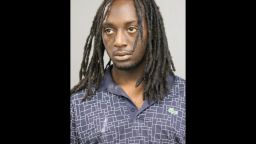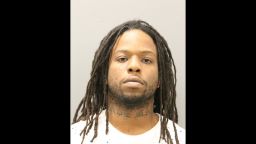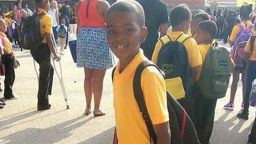Story highlights
NEW: Bond is denied for Corey Morgan
NEW: Autopsy of Tyshawn Lee's body shows part of thumb lost trying to block gunshot
NEW: Corey Morgan retaliated after his brother fatally shot, their mother wounded, in gang war
Four weeks after alleged gang members lured 9-year-old Tyshawn Lee into an alley and killed him – a slaying that some in violence-riddled Chicago called a new low – the city’s police superintendent announced the arrest of one man and vowed to “obliterate” the “criminal” group to which he belonged.
“That gang just signed its own death warrant,” Superintendent Garry McCarthy said Friday. “We’re going to go in and destroy that gang and, by the way, the rival gang, too.”
McCarthy said Corey Morgan, a 27-year-old “documented gang member (and) convicted felon,” is in custody on a first-degree murder charge. But police don’t think Morgan was alone, saying he acted “in concert” with two others. McCarthy didn’t name one, who is in custody on an unrelated charge; the other, Kevin Edwards, is at large.

“Who drove the car, who was on the scene, who pulled the trigger is all being worked on to delineate it,” the superintendent said. “But we do know that these were the individuals who were involved in this.”
Bond was denied Friday to Morgan, prosecutors said.
Court papers provided by the prosecutor’s office said that “Tyshawn’s death is the result of a gang war” between two particular gangs that “came to a boil” after Morgan’s brother, Tracy, was shot and killed in a car with their mother on October 13.
The mother was shot and wounded, court papers said.
“Shortly after the shooting (Corey Morgan) stated that since his brother was killed and his mama was shot he was going to kill grandmas, mamas, kids and all,” according to court papers filed in prosecutors’ request that Morgan be held without bail

An autopsy of Tyshawn’s body showed two perforating gunshot wounds, and part of his right thumb was lost as a defensive wound trying to block a gunshot, court papers said. The boy’s body had a gunshot wound to the head, a bullet graze wound to his right upper back, and a superficial wound to the right forearm, documents said.
“There was evidence of close-range firing,” court papers said.
The afternoon of November 2, officials say, men approached young Tyshawn as he played basketball with friends at a Chicago playground. They led him to an alley and, with a single gun, shot the boy.
The shooting was “targeted and calculated,” McCarthy said. He connected it to Tyshawn’s father, who the superintendent said hasn’t helped police “at all” in the case, and at least two other fatal shootings over the previous months.
“This is a crime that shook our city,” the superintendent said. “It was an act of barbarism, the assassination of a 9-year-old child as a gang retaliation to get back at his father.
“Tyshawn Lee was failed on many, many levels.”
Gun violence, racial tensions in Chicago
Shooting deaths on the streets of Chicago, sadly, are nothing new.
In 2012, the city gained the dubious distinction of murder capital of the United States after it registered 503 homicides, more than any other city. Those numbers have ticked down some, though the FBI’s 2014 statistics show 411 killings, still outpacing cities (such as New York with 333 and Los Angeles with 260) with higher populations.
Some areas of the city are worse than others. They include Auburn-Gresham, a neighborhood on the South Side where gangs battle over turf and the right to sell drugs. That’s where Tyshawn was shot dead, down the street from his grandmother’s house, the Rev. Michael Pfleger said at the child’s funeral.
Opinion: How to end Chicago’s cycle of violence
Investigators don’t know whether any of the men involved in his death knew the 9-year-old personally. But they do believe that he was singled out, not for anything he did but because of his father.
“It’s truly an act of barbarism,” Chicago police Chief of Detectives Dean Andrews said Friday. “It’s a 9-year-old boy that was targeted and executed.”
Citizens came forward despite fear of ‘monster’
Even given the city’s recent history, Tyshawn’s shooting was considered beyond the pale.
“A baby was executed,” said Pfleger, a Catholic priest and local faith leader. “A baby was assassinated right behind us in the alley.”
One longtime resident, Deronce Curd, had trouble coming to grips with the idea of gangs going after children.
“How can a little boy, 9 years old, defend himself?” Curd asked. “I’m speechless to what is going on right now.”

Authorities say one concern was the “code of silence”: citizens’ unwillingness to trust, and talk to, police. That’s partly tied to tensions among law enforcement and African-Americans in Chicago, a situation that’s come to the fore this week with protests over a video showing a white officer fatally shooting black teen Laquan McDonald in 2014.
Protests after release of Laquan McDonald shooting video
That wasn’t the case surrounding Tyshawn’s shooting, however, with McCarthy lauding those who did come forward to help with the case.
“This was very clearly not a case of no snitching, but there was a lot of fear, which is completely understandable,” the superintendent said. “If you have a monster who is willing to assassinate a 9-year-old, what is that person likely to do if they know that somebody is cooperating with the case?”
Police vow to wipe out rival gangs
Though police are confident that they know who was involved in Tyshawn’s death, they still have work to do.
McCarthy expressed confidence that the unnamed man in custody won’t be released anytime soon and that authorities will find Edwards, whom they’ve been hunting for weeks.
“He’s turned his back on his family (and) basically burned bridges in the community with everybody,” the superintendent said of Edwards, who he alleged is a “criminal” like the other two suspects. “We’re definitely going to catch him; it’s just a matter of when.”
Going after the gang all three men were involved with, as well as the one they’ve been feuding with, is another priority for Chicago police.
“We’re going to assign resources,” McCarthy said, “to ensure that neither one of those gangs can raise (their) head again.”
CNN’s Tina Burnside, Dana Ford and Michael Martinez contributed to this report.




















